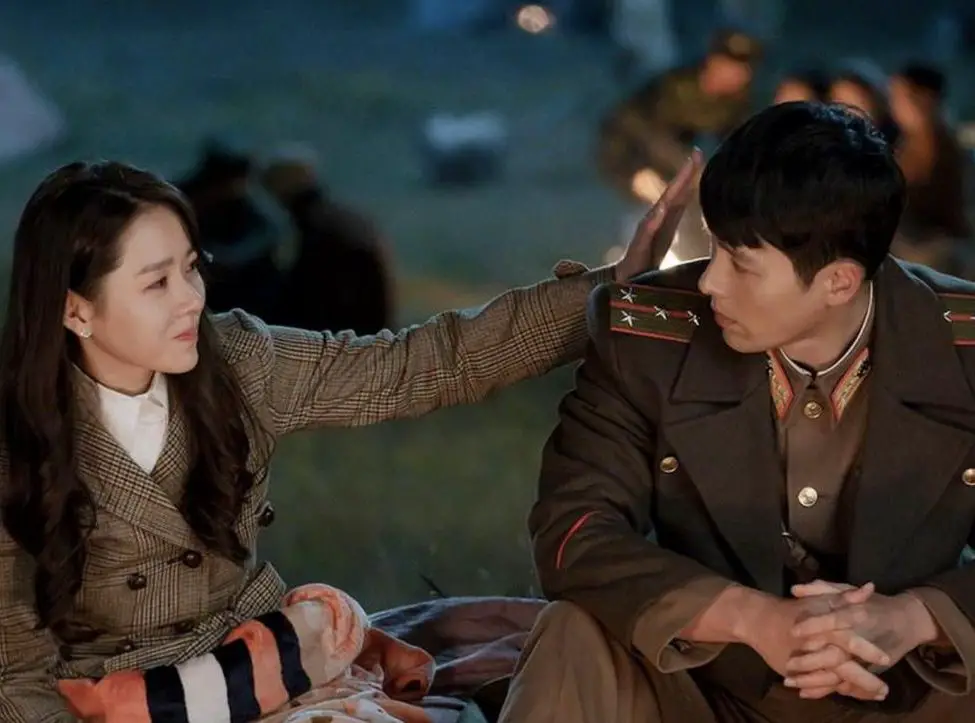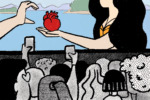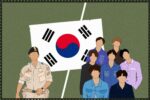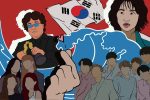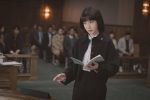In light of the dating rumors being confirmed between Hyun Bin and Son Ye-jin, the two stars of the massively popular Korean drama “Crash Landing on You,” their show has been gaining more popularity on Korean news channels. The second highest-rated drama in Korean television history, “Crash Landing on You” has appealed to millions across the world. The humorous and heartwarming drama tells the love story of Ri Jeong Hyeok, a politically connected North Korean soldier played by Hyun Bin, and Yoon Se-ri, a rich South Korean woman played by Son Ye-jin, who meet after Se-ri’s paragliding accident lands her on the North Korean side of the DMZ. Not only does the show capture the daily lives of a population shrouded in secrecy, but the drama also uses its characters and plot to symbolize the heartbreaking sentiment that still marks the separation of the Korean peninsula.
Representing the Lives of Average North Koreans
While the plot is rather unrealistic and fantastical — most are unlikely to parachute into North Korea and find a soldier with a heart of gold — “Crash Landing on You” has been revered by North Korean defectors for steering away from prevalent stereotypes about the country and its people.
American media has a particular aptitude for releasing sensational and dehumanizing news reports about the country in an attempt to rationalize U.S. aggression toward it. Writing about the possible nuclear capabilities of North Korea’s government and how they have caused mass starvation and suffering in the country (this claim is still debatable) is intentionally prioritized over accurately portraying the lives and culture of North Koreans. Therefore, the only stories of North Koreans that do capture Western media attention are harrowing, dramatic tales of escape from labor or prison camps.
Despite the consistent exaggerations and plain lies propagated by Western media, the entire population of North Korea is not brainwashed into living their lives solely for the Supreme Leader Kim Jong Un and his predecessors. North Koreans do have culture and entertainment including department stores, markets, street food and even K-dramas of their own.
Rather than depicting North Korea and its people with the same exoticism as Western media, the executives and producers of “Crash Landing on You” took extensive efforts to ensure that they made the show as authentic as they could. While consistently consulting North Korean defectors, they were able to humanize the country’s people without romanticizing the country itself.
In particular, the producers were advised by Kwak Moon Wan, a film advisor and screenwriter who is a defector that served with the Supreme Guard Command, the elite security force that protects the country’s ruling Kim family. After a private conversation with his colleague was reported to his boss — in which he likely said many highly incriminating statements about the ruling family — he decided to defect from North Korea, forever leaving his son and his wife.
Due to his input, the series depicted the lack of substantial electricity, frequent power outages and homeless children that are quite prevalent throughout the country. In one scene, the main characters are forced to sleep outside after their train to Pyongyang is delayed due to a power outage. In another scene, a homeless child is seen stealing food for his little sister.
The show likely chose to tread lightly when speaking about the Kim family. While many characters in the show do have images of the Kim family in their home, the only time the family is explicitly mentioned is in a random Zumba-esque exercise class that the entire village participates in.
Perhaps the best choice the show made was to not generally portray North Korea as being “bad” and South Korea as “good.” In a scene in which North Korean soldiers — who are told to go to South Korea to bring back Ri Jeong Hyeok — are asked whether they want to stay in South Korea or go back to the North, all decide to go back, even if they do end up missing some of the modern technologies they enjoyed in the South. The North may be less economically and technologically developed, but they recognize it as their home. By choosing to go back to the North, they dispel the idea that any and every North Korean would choose to leave the country if given the chance.
A North Korean defector told BBC, “It is refreshing how it portrays various aspects of North Korean society without unnecessarily passing judgement, and shows North Koreans as complex people who are ultimately relatable and even lovable, even if they are culturally different.” North Koreans, specifically the younger ones, are fans of K-dramas “and as ‘Crash Landing on You’ accurately depicts, a lot of South Korean films and dramas are smuggled into North Korea.”
Although North Korean defectors have enjoyed the series, the North Korean government did not share the same sentiment. While not explicitly stating the name of the drama, the North Korean government responded with, “Recently, South Korean authorities and film producers have released anti-republic films and TV dramas that are deceptive, fabricated, absurd and impure, putting all their efforts into making strategic propaganda.”
Symbolizing the Separation of the Koreas
While it was clear that Ri Jeong Hyeok would symbolize North Korea and Yoon Se-ri would symbolize South Korea considering their backgrounds, there were moments in the series that highlighted this symbolism particularly well.
The end of the series is bittersweet, with the main characters reuniting in Switzerland for what is implied to be only two weeks a year for a piano concert — the only time Jeong Hyeok can leave North Korea. While most fans were saddened that the main characters did not receive a totally fairytale ending, complete with a wedding and children, it is quite symbolic and fitting that they chose to end the series in this particular way. Just as North and South Koreans only reunite in neutral countries such as Switzerland for special occasions and there is an everlasting longing for total reunification that seems almost implausible in the current era, the main characters are only able to see each other for that one special event. For the rest of the year, they are left in a state of perpetual desire to be reunited fully without any real ability to make it happen.
Not only was the drama’s ending depicting the divide between the two countries, but it also symbolized the much deeper emotional scar of the Korean War. There are still countless stories of families who have been separated by the 38th parallel line that divided the North and the South after the fighting ceased. As reported by The New York Times, every year more than 3,000 elderly South Koreans die without being able to ever see their family in the North.
However, there are rare moments where family members separated by the war are able to see one another when the two Korean governments allow for reunions. Since 1985, 20,000 elderly South Koreans have been chosen (by a computerized lottery) to participate in three-day reunions that connect them with family in the North. Since 1988, there have been 75,200 South Koreans who have applied to attend this organized reunion but who unfortunately died before they were given the opportunity.
Personally, I would love to assume that Jeong Hyeok and Se-ri will be able to live out a proper married life in Switzerland in the distant future, but just as the Koreas will likely not reunite in this lifetime, I doubt these two fictional characters will either.
The show did not shy away from also portraying some solidarity between the two Koreas as well. In one particular scene, a group of North Korean soldiers who were sent to South Korea sit in a chicken restaurant with hordes of South Korean customers who are watching a soccer match between Korea and Japan. The Northern soldiers and the customers at the restaurant rambunctiously cheer for Korea as they win their match. However, the show never explicitly states which Korea is playing. Are the soldiers rooting for the South or are the customers rooting for the North? Ultimately it seems that the answer does not matter, because in that moment, given a common enemy, they both feel as if they are all just Koreans rooting for the one Korean team.
In the current political climate, in which most South Koreans feel distant from their neighbor, and North Korea is exoticized as a “hermit kingdom,” “Crash Landing on You” is a wonderful and heartwarming reminder of the often forgotten humanity of the North Korean people and the everlasting bond, albeit marred with war, between the two Korean countries.


